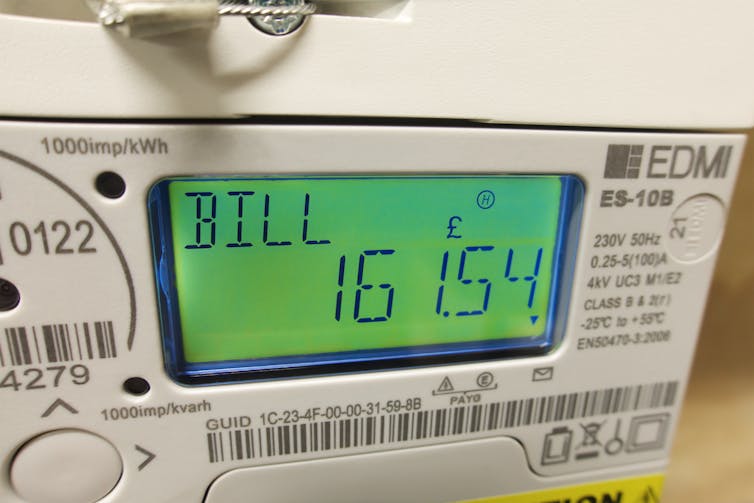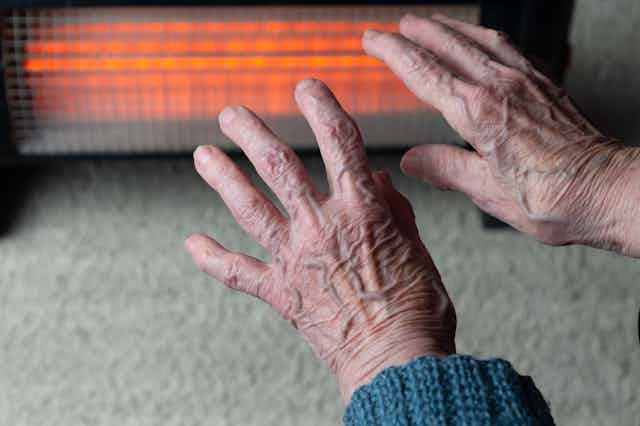Britain’s energy regulator Ofgem is set to increase its cap on energy prices by 54% this April 2022. This is in response to the skyrocketing price of gas, aggravated by demand picking up as countries relaxed lockdown measures, low-wind speeds, and bottlenecks in supply chains.
Over the same period, a recent ONS survey found that of the adults who reported a rise in the cost of living, 79% reported energy bills among the relevant causes.
Though the government has announced some policies to mitigate the projected increase, this will still be sombre news for millions of households. The typical prepayment meter user, for instance, who may well be on a lower income, is about to see an increase in they pay from £1,309 to £2,017 per year. A leading national charity recently estimated that the revised energy price cap could push a further 1.5 million households into fuel poverty (that is, not being able to afford to heat their homes in order to sustain a healthy standard of living).
We recently published a study in the journal Energy Economics which shows that fuel poverty can directly and indirectly impact people’s mental and physical health. Our research uses a nationally representative sample of nearly 7,000 participants in the UK Household Longitudinal Study, Understanding Society, to explore the link between fuel poverty, health and wellbeing.
Across the UK, cold weather severely affects the poorest households. According to Public Health England 35,000 excess winter deaths occur on average each year in England and Wales alone. Undeniably such levels of winter mortality reflect the view that the UK has some of the least energy efficient housing stock in Europe. Together with stagnating real wages and high energy prices, these factors have created the perfect storm for fuel poor and vulnerable households.

Exposure to cold temperatures is known to be associated with increased blood pressure, inflammation, heart attack and stroke risks, regardless of age or gender. We studied elevated bloodstream “biomarkers” – tell-tale markers of infection or inflammation – which serve as an objective measure of health.
Adjusting for a wide array of confounding factors that could be affecting people’s health (such as eating habits, lifestyle or smoking), we found that fuel poverty can “get under the skin” and impact people’s health. Our research shows it has a damaging impact not only on our measure of wellbeing (through lower levels of life satisfaction) but also results in higher levels of inflammation, measured using blood-based biomarker data. For example, we estimate that the likelihood of reporting complete life satisfaction is about 2.9 percentage points lower for those in fuel poverty.
Fuel poverty is widely acknowledged as a distinct form of income poverty and our work shows that it has far reaching implications for health, particularly cardiovascular disease, inflammation and lower wellbeing levels. The negative health, wellbeing and related financial considerations we could expect to arise from the linked increase in energy prices and fuel poverty should be at the foremind of policymakers.
The government and regulators could, of course, have arranged more timely and targeted support, given the increase in the energy price cap falls in line with projections. But they must also now foresee the health and wellbeing effects of fuel poverty – particularly in light of the recent increases and volatility in energy prices.
Over the coming years, the UK will need to protect households from potential long-lasting, high and volatile energy prices. This will require investment in energy efficiency and renewable generation. Targeted support for fuel poor and vulnerable households could help achieve a “win-win-win” in terms of improved health, wealth and sustainability.

Don’t have time to read about climate change as much as you’d like?
Get a weekly roundup in your inbox instead. Every Wednesday, The Conversation’s environment editor writes Imagine, a short email that goes a little deeper into just one climate issue. Join the 10,000+ readers who’ve subscribed so far.

